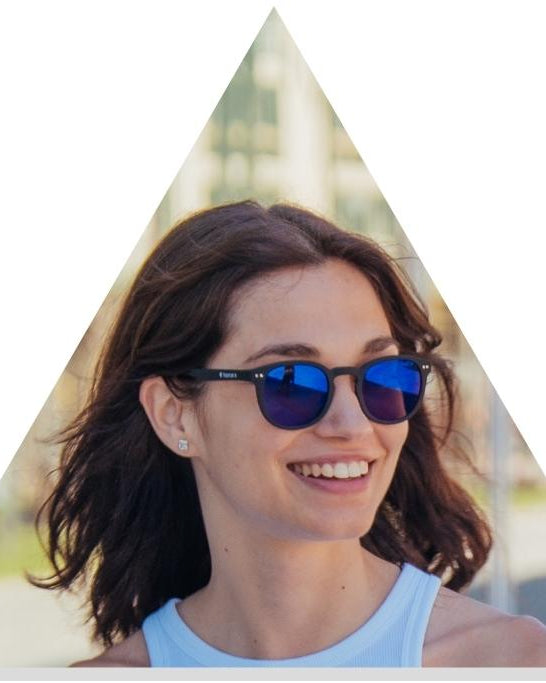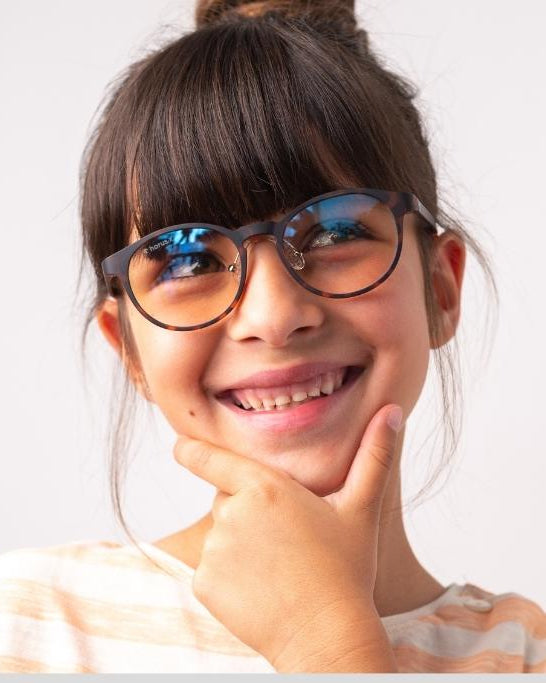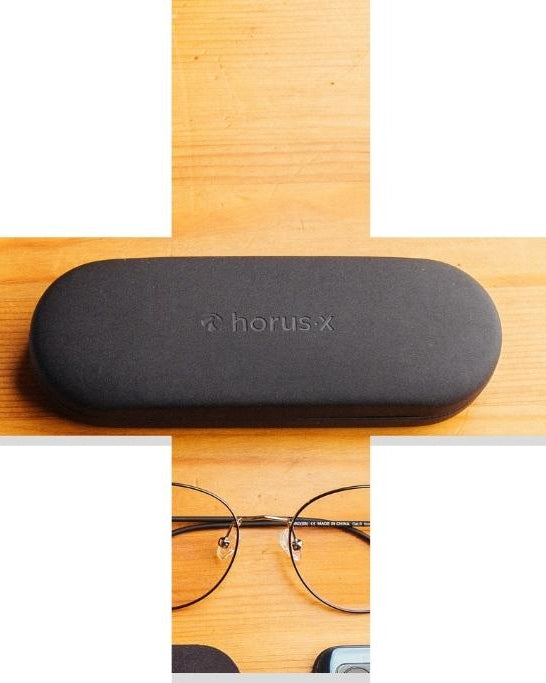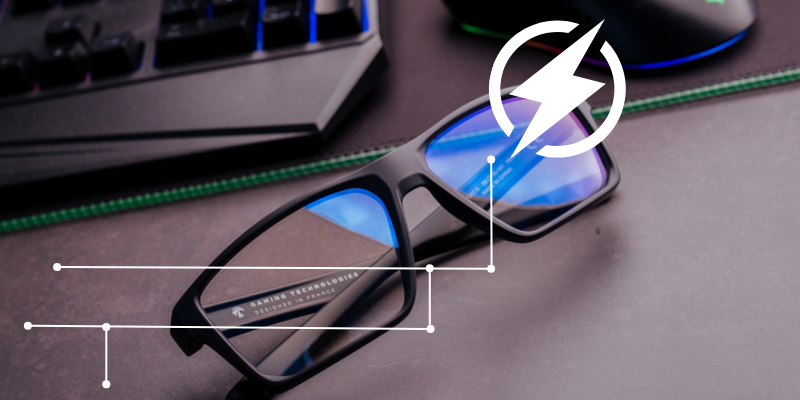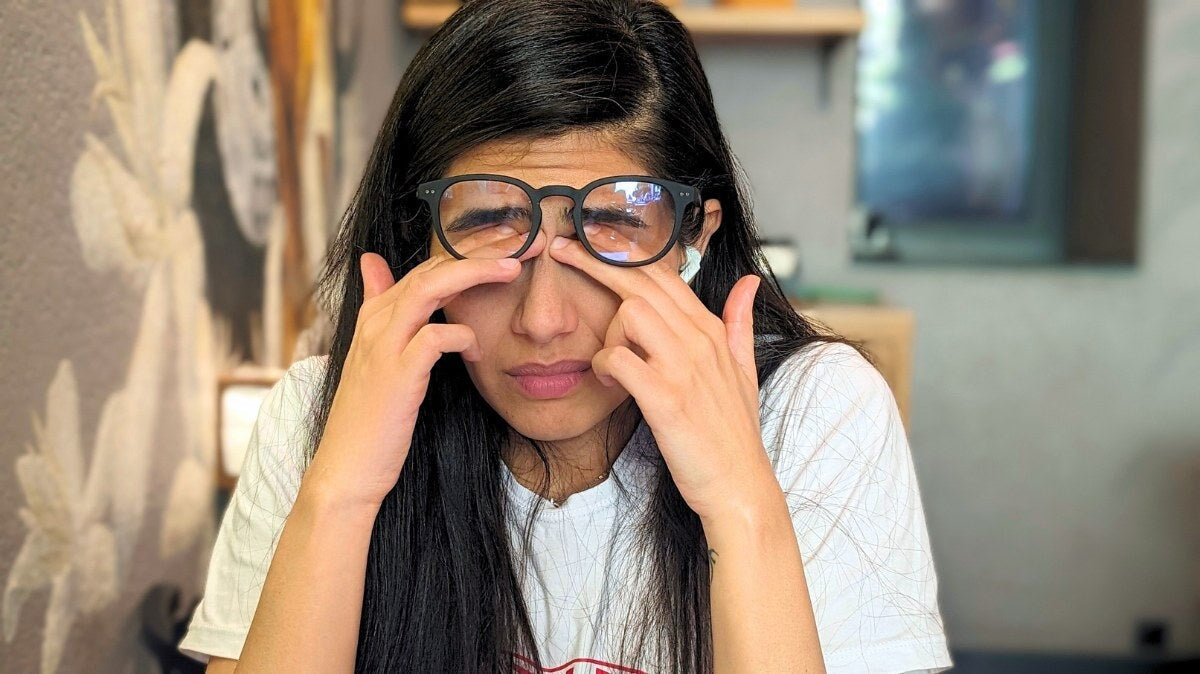You've been seeing more and more people wearing yellow-tinted glasses and wondering why. Is it even a trend? Has Bono become that influential? Or maybe yellow lenses actually serve a practical purpose? In this article, we'll explain why yellow lenses can be useful and, most importantly, in which situations. Yes, yellow-tinted glasses have real uses, and we're here to break it all down for you.
Our Selection of Yellow Glasses by Use
| Use | Image | Recommendation |
| Gaming |
 |
One Revolution |
| Blue Light Protection |
 |
One |
| Night Driving |
 |
Drive |
| Shooting |
 |
Bertoni |
| For Style |  |
Urban |
| For Style |  |
Obsidian |
Why Choose Yellow Lenses?

Let's start at the beginning. We'll outline the main benefits of wearing yellow-tinted glasses before diving into their different uses.
- Improved Visibility: Yellow lenses enhance perception of contrasts, shapes, and colors.
- Reduced Glare: They have a natural anti-reflective effect, especially in overcast or low-light conditions.
- Eye Fatigue Reduction: Yellow lenses soften blue light and help protect against eye strain (more on this below, you know it’s our favorite topic!).
- Enhanced Visual Comfort: Overall, yellow-tinted glasses provide better visual comfort depending on the situation and weather conditions.
Yellow Glasses for Blue Light Protection and Gaming
Let's talk about blue light glasses and yellow gaming glasses. Their shade varies from yellow to orange depending on their filtration level.
How does it work? Essentially, yellow-orange is the complementary color of blue-violet. This tint is therefore used in optics to counter harmful blue light. It's a bit more technical than that, but you get the idea.
Without diving too deep into technical details, companies that produce blue light glasses use yellow-orange pigments in the lens material. Whether for gamers or anyone spending long hours in front of screens, blue light glasses can be tinted yellow or amber.

- 🎮 Gaming glasses are usually heavily tinted. They filter the maximum amount of blue light, though they can slightly alter color perception. They’re not subtle, but they are a staple of a gamer's toolkit and even a fashion accessory. We recommend yellow/amber lenses for optimal night or evening protection during intensive use.
- 👨💻 Light-tinted blue light glasses are a “lighter” version of gaming glasses. The tint is much subtler, more discreet, and while they filter less blue light, they still provide effective protection against harmful wavelengths. Perfect for everyday office use during the day.
In short, lightly tinted blue light glasses get the job done during the day: it’s even nicer to go to work looking like Clark Kent rather than Ali G.

Night Driving Glasses: For Better Night Vision
The second most popular use for yellow-tinted glasses is night driving.
You can find all sorts of products online for this, and even offline—remember Olivier from Carglass? He offered some pairs a while back (rumor has it he tested them at night on the road to meet Cerise from Groupama).
More seriously, as mentioned earlier, yellow-tinted lenses for night driving have the ability to enhance contrasts and reduce glare. A pair of yellow driving glasses can help you avoid the dazzling headlights of oncoming cars (especially those who forgot to switch to low beams).

This effect comes from a few factors. The first is the yellow pigment, which is known to enhance contrast perception and helps the eye better distinguish shapes in low-light conditions.
The second factor is the presence of an anti-glare coating (also called anti-reflective treatment), which significantly reduces glare.
Just like polarized sunglasses reduce reflections on water or snow, this treatment works here to reduce glare from headlights or streetlights.
These types of glasses also come in clip-on night driving glasses, which are perfect for those who wear prescription lenses and are generally more sensitive to night vision issues.
Low Vision Glasses: Added Contrast and Better Object Definition

When it comes to night driving, yellow lenses help you see better. In general, this applies not only at night but in any low-light situation.
Think, for example, of a bike ride in the woods on a gray day or in foggy conditions. Just like with night driving, yellow-tinted lenses help enhance contrast. They’re also popular with golfers, hikers, and fishermen (surgeons, mechanics… okay, we’re joking here).
People with low vision may also try lenses with shades from yellow to amber to improve visual clarity. If this applies to you, discuss it with your doctor. (This is not medical advice.)
Sunglasses: Polarized, Yellow-Tinted Lenses, UV Protection

Yellow lenses can also be used in sunglasses alongside a polarizing filter. However, their tint is not ideal for blocking sunlight in very bright conditions because yellow lenses let in more light than gray, brown, or green lenses, for example.
They are very useful on cloudy days (remember, a large portion of UV rays can pass through clouds, so protection is still important!) to improve contrast and visual comfort. Perfect for your vacation in Normandy, then.
Before giving in to the temptation of canary-yellow lenses (or lemon, or chick yellow—take your pick), note: this color does not provide 100% UV protection. Always check that they have an anti-reflective coating, an appropriate lens category, and meet current standards. Style isn’t everything!
Shooting Glasses
While we’re not in Texas with fifteen guns per person, sometimes we go to the shooting range or hunt a partridge every now and then.
For this, nothing beats yellow-tinted glasses. For the same reasons mentioned earlier, your vision and perception will be improved, especially in dark places like a shooting range or in the forest for hunters.
Don’t thank us—we just found you a Christmas gift idea for your uncles Christian and Jean-Bernard. Perfect for their Saturday hunting trips, and it’ll prevent them from aiming at their dog next time.

Singer Glasses
Here, scientists don’t all agree. Some Irish researchers claim that yellow glasses can enhance your singing ability, just like Bono (for the younger ones, he’s the lead singer of U2 from the last century).
French studies point out the problem: it doesn’t always work. Some people keep singing like a goat, with or without glasses (even as Ardéchois, we struggle with that bleating sound).
You get the idea: at Horus X, we like to joke around… (pun intended, of course).

Yellow Lenses: The Final Word
You’ve understood it: yellow-tinted glasses are not just about style. This tint is most useful in low-light conditions (night, fog, cloudy weather, or just your windowless gaming room) because it enhances contrast, visual comfort, and effectively blocks blue light (provided you took the time to choose your blue light glasses properly).
They are particularly suited for night driving, cloudy conditions, some sports, and, above all, for protecting against blue light.
Finally, keep in mind that they’re not suitable for every situation: they are not beach sunglasses or for very sunny conditions. In those cases, opt for a darker tint.



